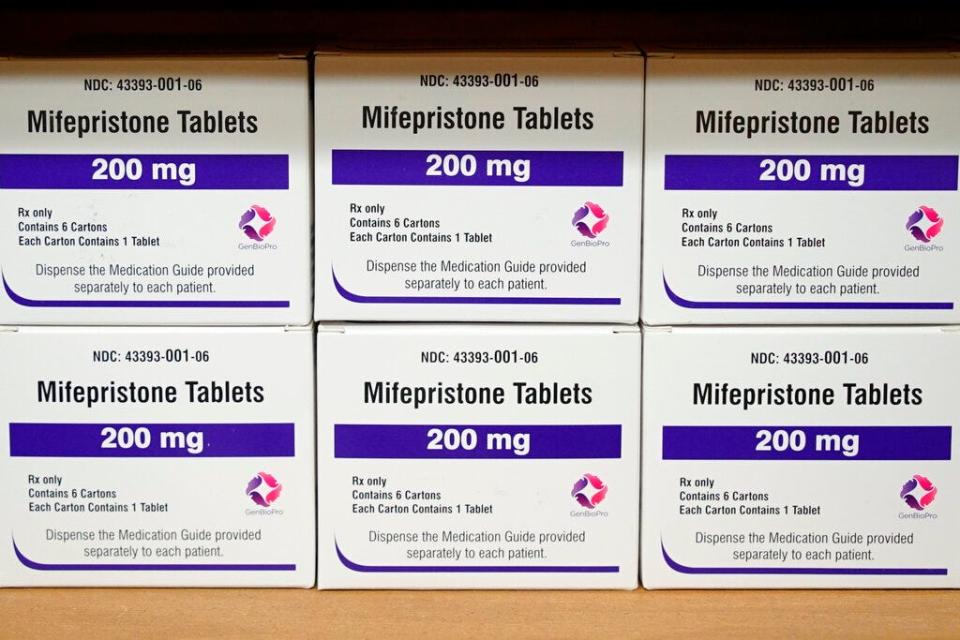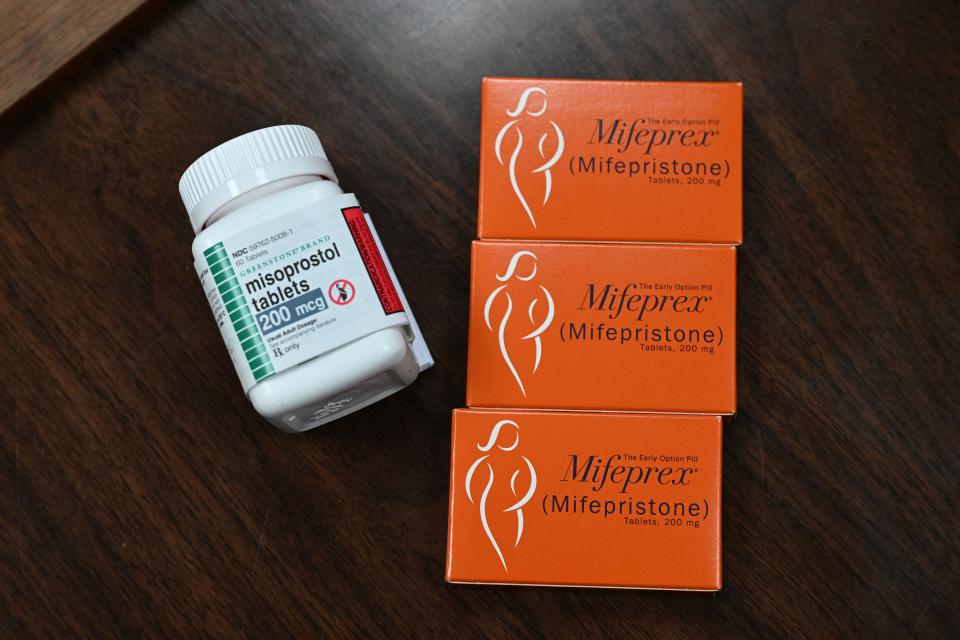With eyes on Texas mifepristone case, 2 other abortion pill lawsuits 'flying under the radar'
As the legal battle over abortion pills continues, legal experts are pointing to two lawsuits related to medication abortion that haven't made headlines but could have national implications.
In North Carolina and West Virginia, two separate lawsuits filed in January are making their way through the court system, challenging state restrictions on mifepristone access.
"These lawsuits have been flying under the radar, most likely because they're happening on a more state-by-state basis as opposed to the ruling in Texas," said Allison Whelan, assistant law professor at Georgia State University. "But at the same time, the outcome of these cases can also have nationwide implications."
In April, two competing court decisions, including a Texas ruling that sought to revoke FDA approval of the abortion pill mifepristone, plunged the future of the drug into uncertainty. The case heads back to the 5th Circuit Court of Appeals for a hearing next month after the Supreme Court ruled to allow widespread access to the drug as the lawsuit works through the court system. There's a good chance the case will wind up back in front of the Supreme Court.
Meanwhile, the lawsuits in North Carolina and West Virginia seek to entrench mifepristone access, experts said.

North Carolina, West Virginia lawsuits center mifepristone access
The cases were brought by a North Carolina physician who prescribes mifepristone and GenBioPro, a pharmaceutical company that makes a generic version of the drug and filed the lawsuit in West Virginia.
Rachel Rebouché, dean of Temple University's law school, said the lawsuits revolve around preemption, a constitutional doctrine "that essentially says federal law preempts conflicting state laws, that federal law reigns supreme."
Both cases challenge the states' restrictions on mifepristone by arguing FDA regulations preempt state law.
"Both cases are pressing the argument that the FDA was given the authority by Congress to create a uniform drug policy for this country and is the agency trusted with assessing drugs' safety and efficacy," she said. "So FDA regulations should preempt or is superior to any state regulation that contradicts it."
Has this been done before?
Rebouché said this argument "hasn't really been tested before."
"One of the reasons we haven't really seen this argument is because it's not very often that a state would try to ban an FDA-approved drug or challenge the FDA's authority," she said.
Whelan said if the two courts rule differently in the cases, they could work their way up to the U.S. Supreme Court "to decide really knotty, unclear issues of federal preemption that the court has never squarely addressed."

State lawsuits have 'nationwide implications,' legal experts say
The cases could have "nationwide implications" and lead to similar lawsuits in other states with abortion bans and restrictions, Rebouché said.
"This is likely going to be the heart of the abortion debate for years to come as states seek to close down access to pills and other litigants seek to expand and broaden access to medication abortion," she said.
How might the Texas abortion pill ruling affect these lawsuits?
Rebouché called the pair of cases "the mirror image of the Texas case" and said they "offer radically different visions of FDA authority to approve a drug."
"These are cases that seek to solidify and entrench the FDA's authority to weigh in on a drug's efficacy and safety, whereas the other case in Texas is largely seeking to do the opposite," she said.
With the Texas case moving through the court system at an expedited pace, it may have a significant impact on the outcomes of the cases in North Carolina and West Virginia.
For example, if mifepristone's FDA approval is revoked, "these lawsuits essentially become moot," Whelan said.
Rebouché also said it's unclear how these cases will move through the court system with the legal battle over the Texas lawsuit still underway.
North Carolina, West Virginia restrictions on medication abortion
While the lawsuit in Texas directly targets nationwide access to mifepristone, these two cases target specific state restrictions to the drug.
In addition to general abortion restrictions, 19 states — including North Carolina and West Virginia — have separate laws restricting how, when and where physicians can prescribe and dispense abortion pills.
North Carolina bans nearly all abortions after 20 weeks of pregnancy and only allows physicians to prescribe abortion pills after state-mandated counseling, according to the Guttmacher Institute, a research and policy organization that supports legal access to abortion. The state also requires physicians to dispense the pills in person, rather than allowing telemedicine.
West Virginia outlaws most abortions with exceptions for rape, incest and life-threatening medical emergencies.
This year, eight states have seen bans on medication abortion introduced in state legislatures, according to the Guttmacher Institute. This includes Wyoming, which became the first state in the country to ban the manufacturing, distribution and sale of abortion pills.
Dig Deeper: Abortion access
Latest on abortion pill battle: Supreme Court sides with the Biden administration, halts restrictions on mifepristone
After Roe v. Wade: 5 ways the landscape has changed since the end of Roe v. Wade 'upended' abortion access
'Chaos and confusion': Abortion rights advocates across US speak out after latest setback
Poll: Most Americans say medication abortion should be legal
'No drug is safe': Mifepristone court battle could threaten access to other FDA-approved drugs
Mifepristone 'safer than Tylenol': Experts speak out amid court battle over major abortion pill
Contributing: The Associated Press
Contact Christine Fernando at cfernando@usatoday.com or follow her on Twitter at @christinetfern.
This article originally appeared on USA TODAY: Mifepristone Supreme Court case: 2 other lawsuits target abortion pill

